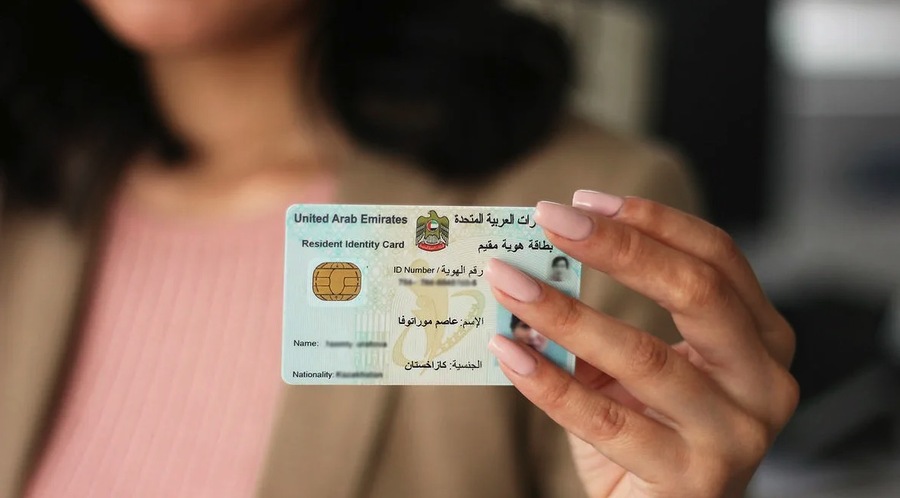Company formation in Dubai involves navigating various legislative procedures created to guarantee an open and effective business climate. This article gives entrepreneurs the knowledge they need to ensure a seamless setup process by outlining the important methods and legal criteria for starting a business in Dubai with ProFounders.
1. Selecting the Organisational Structure
Choosing the right business structure is one of the most important steps in starting a business in Dubai. The selection of the business entity impacts the legal and operational facets of the company.
Limited Liability Company (LLC): Limited liability companies (LLCs) are the most popular business formation for foreign investors. At least one UAE national partner must control 51% of the LLC. The foreign investor retains operational control, and profit-sharing arrangements may be formed. The amount needed to establish an LLC varies based on the kind and scale of the enterprise, ranging from AED 15,000 to AED 20,000. LLCs are preferred because of their profit-sharing and operational management adaptability.
Sole Proprietorship: This structure is suitable for small firms. It is owned exclusively by one person. Decisions and earnings in the firm are entirely under the sole proprietor’s authority. However, the owner also bears personal responsibility for the company’s obligations. Setup costs are not too high, at about 10,000 AED. Small business owners, freelancers, and consultants will find this structure excellent.
Branch Office: This is an overseas parent company’s outpost. A branch office must carry out comparable operations to its parent corporation’s. Unlike LLCs, branch offices are not limited by foreign ownership. Setting up a branch office can cost between AED 20,000 and AED 30,000. Branch offices are suitable for companies looking to establish a strong presence in Dubai without creating a separate legal entity.
Free Zone Company: These businesses enjoy complete profit repatriation, tax benefits, and 100% foreign ownership. Free zones provide expedited business setup procedures and are tailored to certain sectors. The startup fees for a free zone might vary from AED 15,000 to AED 50,000, contingent upon the license type and the particular free zone. Free zones are perfect for companies primarily involved in international commerce, services, or logistics.
To guarantee compliance with UAE regulations, each structure’s particular operational and regulatory criteria must be fulfilled.
2. Choosing the Line of Business
It is essential to decide what commercial operations will be carried out. The selected activity must fit the business license and be authorized. The Department of Economic Development (DED) in Dubai has a detailed list of approved activities that are broken down into many categories:
Commercial activities: Commercial activities include buying, selling, and trading things. Retail establishments, export/import companies, and e-commerce platforms are a few examples. It is imperative to confirm that the selected activity complies with the commercial license, which often has an annual fee of AED 10,000 to AED 15,000.
Professional Activities: These consist of marketing, accountancy, and consulting services. Professional licenses range in price from AED 7,000 to AED 10,000 per year and are specifically designed for service-oriented organizations. It may be necessary to provide additional evidence, such as the credentials and work history of the company’s principal employees.
Industrial activities: Manufacturing and production are included in the category of industrial activities. Businesses engaged in large-scale manufacturing and processing operations must get industrial licenses. An industrial license might set you back up to AED 30,000 a year. Adherence to safety and environmental requirements is essential.
Confirming that the selected activity complies with local laws and license types is crucial. This alignment guarantees that the company stays within the parameters of its license and avoids legal entanglements.

3. Registration of Business Names
A crucial stage in establishing a firm is selecting a distinctive and legal trade name. The trade name should follow the DED’s naming criteria and represent the company’s nature.
Choosing a name: When choosing a name, make sure it is distinct and hasn’t already been registered by someone else. Additionally, it must respect the cultural and religious sensitivities of the area. Names containing rude or improper words are not allowed.
Registration Procedure: The name must be registered with the DED as soon as a suitable one has been selected. The procedure includes submitting the name for approval and ensuring it complies with all legal specifications. AED 620 is the fee for registering a trade name with the DED. This charge includes both the business name search and reservation.
Registering a trade name guarantees the legal recognition and protection of the business name. A registered trade name gives the company a distinct identification and prevents others from using the same name.
4. Getting the First Approval
The DED or the appropriate free zone authority must provide first permission. This process involves obtaining clearance for the selected business activity and company name.
Application Process: To apply for initial permission, fill out an application form with information about the company’s activity, trade name, and ownership structure. The DED or free zone authority reviews the application to ensure it complies with local laws.
Approval Fee: AED 120 is often required for the first approval. This charge covers the application processing and review administrative costs.
Confirming the business name and activity lets you proceed with the setup procedures. First, permission is required to create the Memorandum of Association and rent office space.
5. Composing the Association Memorandum (MOA)
The MOA describes the firm’s ownership, operations methods, and structure. It is an important legal document that outlines the obligations of the company’s shareholders.
Preparation: Draft the Memorandum of Agreement (MOA), outlining the management structure, profit and loss sharing, and the roles and obligations of shareholders. The company’s goals and operating procedures must also be included in the MOA.
Notarization: To guarantee the legal validity of the MOA, it must be notarized by a public notary. Notarization involves verifying the signatories’ identities and confirming that the document complies with local regulations. Depending on the document’s length and complexity, the MOA can be notarized for a fee of AED 2,000 to AED 4,000.
The Memorandum of Agreement (MOA) is an essential legal document that has to be precise and adhere to UAE laws. A properly drafted and notarized Memorandum of Association guarantees the legal protection of the business’s operations and the well-defined rights of its shareholders.
6. Locating a Local Agent or Sponsor
Mainland firms are required to choose a local sponsor. The sponsor must be a UAE national who owns at least 51% of the business.
Local sponsor: The local sponsor is a UAE native who owns 51% of the business. The sponsor is not involved in the company’s day-to-day management; their work is mostly administrative. The sponsor’s annual compensation ranges from AED 10,000 to AED 30,000. Usually, a side agreement between the foreign investor and the local sponsor specifies the pay conditions.
Local Service Agent: Businesses that provide professional services must hire a local service agent. The agent does not own any company stock, but it helps with government-related processes. The annual agent charge is between AED 5,000 and AED 15,000.
This approach enables foreign investors to retain operational management while guaranteeing adherence to UAE ownership regulations. An appropriate local sponsor or agent is essential for starting a profitable, law-abiding business in Dubai.

7. Renting Office Space
Setting up a business in Dubai requires securing a real office. The office space must meet the legal criteria of the DED or other applicable free zone authorities.
Office Space: Obtain an office following the law. The office needs to be appropriate for the company’s operations and adhere to zoning regulations in the area. Prices differ according to size and location. Smaller office premises in less central places may cost between AED 15,000 and AED 50,000 per year, while office rent in Business Bay may vary from AED 60,000 to AED 150,000.
Tenancy Contract: For about AED 200, obtain a tenancy contract and have it attested by the Ejari system. An online platform called Ejari registers rental agreements, guaranteeing legal compliance and transparency.
A physical office is legally mandated to serve as a business address for official correspondence. The location of the business’s offices can greatly impact its visibility and accessibility to partners and clients.
8. Filing the Application for a Licence
Send the application for a business license to the DED or the appropriate free zone authorities. This phase formalizes the business establishment and grants the operating permit.
Documentation: Attach the lease agreement, the MOA, the initial permission certificate, and any additional required papers. The whole documentation set guarantees the application’s compliance with all legal requirements.
License Fee: Depending on the kind of license and the type of company activity, the cost of a business license can range from AED 10,000 to AED 15,000.
This phase formalizes the business establishment and grants the operating permit. Getting a business license is crucial in establishing a company that operates lawfully.
9. Getting More Permissions
Additional ministry or authority clearances are needed for some company operations. These licenses guarantee that the company follows rules and specifications particular to the sector.
Special Permissions: If necessary, secure permissions from the appropriate ministries or authorities (e.g., healthcare, education). For instance, the Knowledge and Human Development Authority (KHDA) must approve educational institutions, whereas the Dubai Health Authority (DHA) must approve healthcare businesses.
Cost of Approval: Further approvals vary based on the industry and particular specifications. For instance, it may cost between AED 5,000 and AED 10,000 to get DHA certification, whereas it might cost between AED 10,000 and AED 20,000 to get KHDA clearance.
To prevent legal issues, ensure that all required authorizations are acquired. The company may be subject to fines, penalties, or even closure if the necessary permissions are not obtained.

10. Obtaining labor cards and visas
Applications for labor cards and visas are crucial for employees and company owners. In Dubai, these documents are necessary for both work and legal residency.
Employment Visas: AED 2,500 to AED 3,500 is the fee for each employment visa. This covers the cost of the Emirates ID, medical examinations, and visa issuance. Normally, work visas are only good for two or three years, after which they need to be renewed.
Labor Cards: The Ministry of Human Resources and Emiratization (MOHRE) is the place to get labor cards; they cost about AED 2,000 apiece. Every employee in the UAE must have a labor card, which is documentation of their job status.
This stage aims to ensure legal residence and work permission for business staff. Handling visa and labor card applications makes compliance with UAE labor rules and regulations easier.
11. Creating a Business Bank Account
Operational management and financial activities require a company bank account. A corporate bank account must be opened by presenting the bank with certain paperwork.
Establish a bank account by opening one with the required paperwork at a nearby bank, including copies of the shareholders’ passports, the MOA, and the trading license. The bank may also need a board of directors resolution authorizing the account opening.
Depending on the bank and the kind of account, fees might range from AED 500 to AED 2,000. Dubai’s banks provide a range of account alternatives, such as credit facilities and internet banking suited to business needs.
A corporate bank account simplifies financial administration and commercial activities. Payroll management, daily operations, and other financial tasks depend on it.
12. Filing Tax Returns
If the firm satisfies certain requirements, tax registration becomes necessary. Value Added Tax, or VAT, is the main tax that businesses must pay in the United Arab Emirates.
VAT Registration: If your yearly revenue exceeds AED 375,000, you must register for VAT. To register for VAT, a firm must apply to the Federal Tax Authority (FTA) and provide information about its financial transactions and business operations.
Tax Compliance: Ascertain that all other related tax responsibilities are met. This entails keeping correct accounting records, submitting regular VAT reports, and making timely VAT payments. Fines and penalties may be imposed for breaking VAT legislation.
Tax registration ensures compliance with UAE tax rules and regulations. Proper tax administration also ensures smooth business operations and prevents legal complications.
13. Adhering to Health and Safety Guidelines
Respecting health and safety laws is essential for the welfare of clients and staff. All companies operating in Dubai are required to abide by these rules.
Regulatory Compliance: Get required licenses and certificates and abide by UAE health and safety regulations. These might include certificates for occupational health, environmental clearances, and fire safety licenses.
Cost of Compliance: Expenses are determined by industry and particular regulations. For instance, acquiring an environmental clearance might cost anywhere from AED 5,000 to AED 10,000, while a fire safety certificate may cost between AED 2,000 and AED 5,000.
Adherence to health and safety protocols safeguards workers and guarantees lawful operations. Additionally, it improves the company’s credibility and reputation with partners and customers.
14. Current Permits and Licences
Licenses and permissions must be renewed regularly to keep things operating legally. Late license renewals may result in penalties and fines.
Procedure for Renewal: Permissions and business licenses must be renewed every year. The renewal procedure entails paying the renewal costs and providing updated documentation.
Renewal Fee: Fees usually range from AED 10,000 to AED 15,000 and are comparable to the initial licensing fees. Additional expenses can occur if the ownership structure or corporate operations are modified.
Compliance with regulatory changes and timely renewals are essential for continuous business operations. Regularly renewing and examining licenses facilitates adherence to UAE legal requirements.

15. Keeping Accurate Financial Records
In Dubai, maintaining accurate financial records is a requirement for all firms. Effective financial management facilitates decision-making and corporate planning while guaranteeing adherence to UAE accounting rules.
Accounting Standards: Adhere to the UAE’s accounting standards. This includes creating financial statements, carrying out routine audits, and keeping thorough records of all financial activities.
Financial Records: Maintain correct financial records and submit financial statements and audits when necessary. Accounting and bookkeeping services might cost anywhere between AED 1,000 and AED 3,000 a month, depending on the intricacy of the firm and the amount of transactions.
Sound financial management assists with company planning and decision-making and guarantees compliance. It also strengthens the company’s reputation with partners, investors, and government regulators.
Conclusion
To establish a business in Dubai, one must comply with several legal criteria. Entrepreneurs may ensure compliance with UAE legislation and a successful business establishment by comprehending and following these legal requirements. The procedure may be made much simpler with careful preparation and expert help, freeing business owners to concentrate on expansion and success in the competitive Dubai market. Following these regulatory standards is essential for a successful business formation in Dubai, regardless of the size of your company.

I am an award-winning freelance writer specializing in financial topics. I have more than a decade of experience, she has been published in The Wall Street Journal, the New York Times and numerous industry magazines, including Harvard Business Review.


